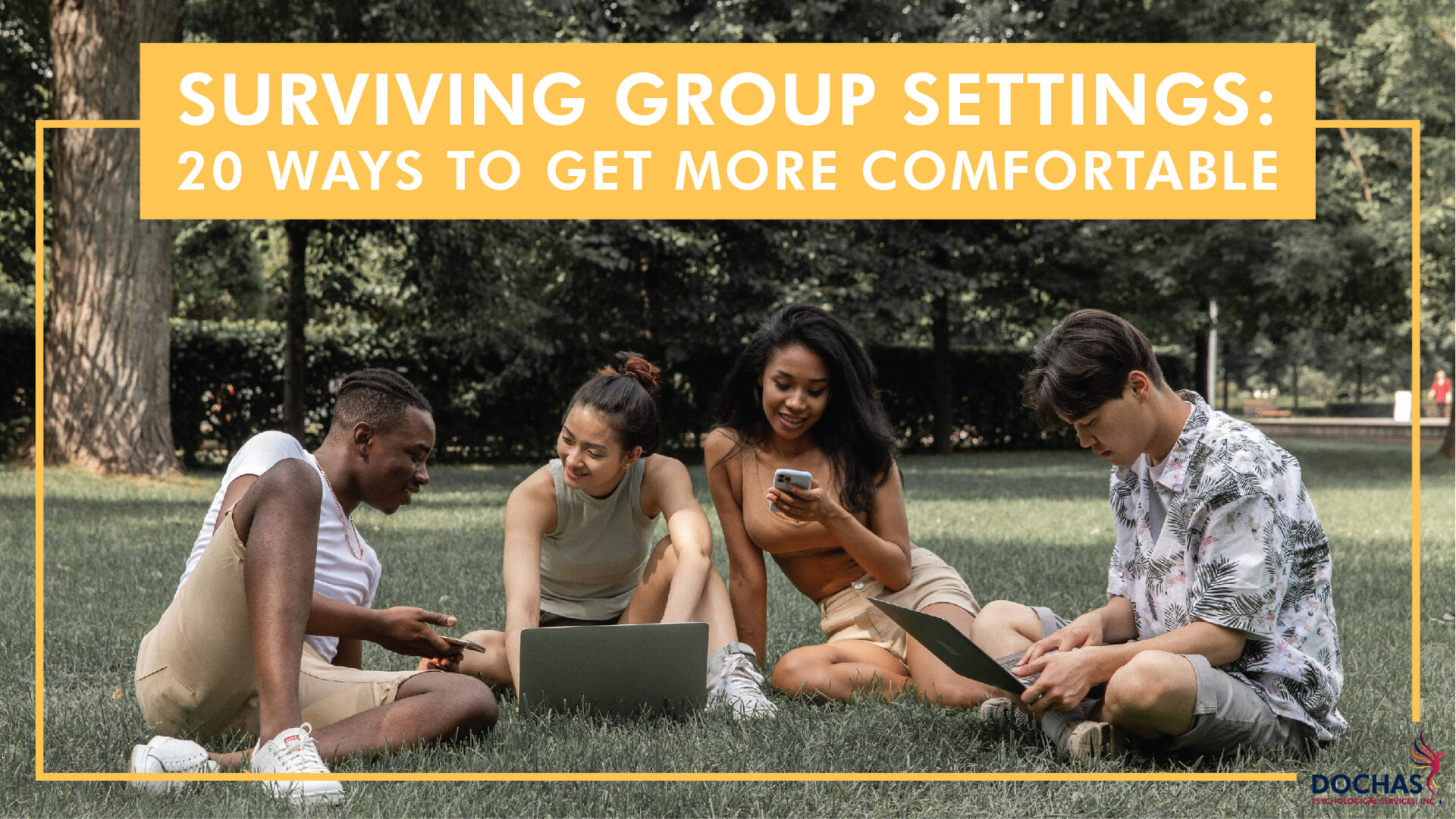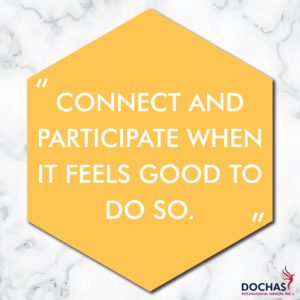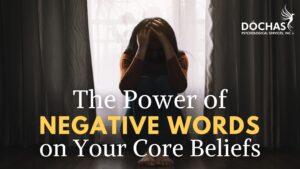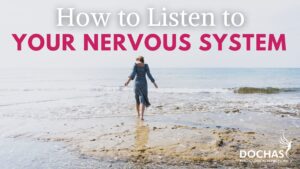Put your hand up if you’ve ever felt uneasy before going to a group event. We’re with you! Sometimes it seems as if there is an expectation that everyone is equipped to deal with group settings, but we don’t all have that skill set. Even if we do, it’s easy for our self-doubt and nervousness about the unknown to get the better of us. After months in quarantine and more home office settings we’ve gotten a pass on group events. As much as some of us would love to stay away from group settings whenever possible, unfortunately that’s just not a reality. That being said, it’s possible to face group settings head on and eventually learn how to battle the Nervous Nellies. Here are 20 tips you can use before, during and after a group event that will help you get more comfortable with the idea of group settings post-quarantine.
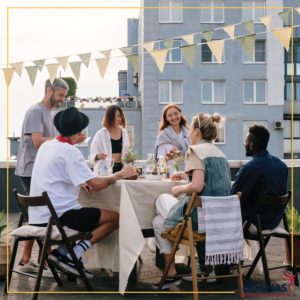
Preparing for Group Settings
- Think of someone you know who might be at the event. Leaning on the idea that you will see a familiar face can be comforting.
- Do some prep work. Depending on the type of event you’re going to it can be helpful to brush up on some things. We call this your parachute or lifeline! Maybe you’re going to a work event and need to learn a few people’s names or positions. If it’s a social gathering have a few news stories in your back pocket for a great conversation starter!
- Check in with a friend. You can let someone know that you’re going to a group event and have that person be available for check ins as you need them.
- Have an exit strategy. We’ve all been in the scenario where it feels impossible to leave an event. Decide how long you would like to stay, and have a reason for leaving. Personally, we love “I need to get home to my dog” – It works every time!
- Allow comfort in both your mind and body. Dress for the event so you feel proper, but make sure you’re comfortable.
- Set an intention. Go to the group event with a mission that you’ll get something out of it! Maybe your mission is to learn one new piece of information or find out something new about yourself.
- Face the scary. We all go into group settings wondering about the what ifs and imagining worst case scenarios. Our advice is try to answer those what ifs. What if you don’t know anyone at the event? You can hang out by the buffet and comment on the amazing food!
During the Group Event
- Read the room. When you arrive at the event, observe the room and observe yourself. If it’s a place where you do not feel safe and you have the opportunity to leave, we suggest you do that.
- Give yourself a fair shot. Of course you’re going to feel nervous when you arrive, but give yourself a chance to calm the nerves before deciding to leave.
- Focus on your energy. A lot of the time we feel like we have to match the energy in the room and this can get exhausting.
- Participate when it feels good. At group events it’s easy to feel pressure to connect with everyone there. Connect with people one on one and in chunks. Be a passive observer and participate when you feel like doing so.
- Give yourself something to do. For those of us who are highly sensitive and overwhelmed in group settings, it helps to keep busy. You can top up peoples’ drinks, help clean up or float between rooms.
- Be in the present. Comment on present moments or details of the space you’re in. This will help to manage anxiety. Give people compliments, mention some decor you love, or comment on the weather. For more ways to help with anxiety, click here to read our blog on Grounding Techniques for Anxiety.
- Check in with yourself and decide when it’s time to implement your exit strategy. For tips on how to easily leave a conversation check out this article.
After the Group Event
- Check in with your emotions. Think about how the event went, whether you feel balanced or drained, and what you might have learned (did you fulfil your mission?).
- Follow up with the group. This can be as simple as thanking the host, or maybe you want to follow up with some new connections you made.
- Use your support system. Follow up with your friend and let them know how the event went and how you felt about it.
- Reflect. Think of what you liked and disliked about the event and keep this in mind for next time. Maybe you can repeat the things you liked, and change the things you disliked.
- Hang on to your strategies. Think about which of these strategies worked well for you and how you can continue to use them in the future.
6. Reward yourself. You did something out of your comfort zone and you deserve to treat yourself!
Use Strategies that Work For you
Well, there you have it! We know that you probably have even better strategies that work for you and could help others. We’d love to hear about them! Let us know your strategies for surviving group settings by commenting on this blog or sending us an email at info@dochaspsych.com.
Now we invite you to choose one thing that you’ve wanted to do or attend but you’ve avoided, and go do it! Try some of the strategies above and note which ones work well for you and which ones you can tweak in the future. Remember, the group setting doesn’t have to be one hundred people. A group of four people is more than enough to test the waters and battle those Nervous Nellies!
As usual, if you have any questions or if you’re looking for support, you can learn more about us on our website or contact us by email or phone.
About Dochas Psychological
Dochas Psychological Services is a well-established and trusted therapy clinic located in Spruce Grove, Alberta. At Dochas we value the idea that everyone deserves a safe space. Through connection and education, our team works hard to build a trustworthy relationship with each of our clients. It is our goal to create a community for our clients to feel like they belong.
Disclaimer
Information provided through Dochas Psychological Services blogs or vlogs are meant for educational purposes only. They are NOT medical or mental health advice. You can read more about our disclaimer here.

